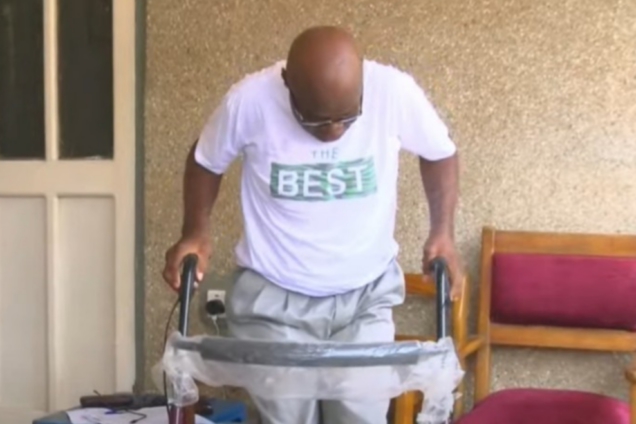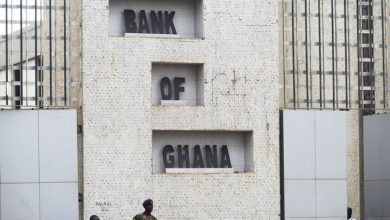77-year-old retiree vows not to leave bank till he receives bond returns

|
Getting your Trinity Audio player ready...
|
A 77-year-old sick retiree, Peter Kojo Nyasepe, has vowed to stay at his bank’s premises until he receives the interest on his bonds at the end of the month.
Peter, who is a bondholder says he uses the returns from his investment to buy medicines to survive and therefore the returns cannot be withheld.
Speaking in an exclusive interview with JoyNews, Joojo Cobbinah, the aggrieved man said he opted for government bonds due to his painful ordeal with a ponzi scheme in the past.
But according to him, he is now living in anxiety due to the government’s proposed Domestic Debt Exchange programme which will deny him the returns for this year.
“I gave the money to the Ghana Commercial Bank so they’ll give me the money before I come. I’m going to stay there.
“If they say the money is not there, I’m going to stay there. I’m going to stay there until they carry me wherever they want to carry me because I cannot walk myself so they’ll carry me.
“Wherever they want to carry me they have to carry me and go. That’s the only thing I can do. I cannot fight them also”, the distraught retiree said.
Mr Nyasepe’s sentiments come on the back of government’s proposed Domestic Debt Exchange programme.
In a bid to rescue the economy and secure a deal with the International Monetary Fund (IMF), government has proposed that all bondholders will not receive any interest on their bonds for the 2023 financial year.
The payment of dividends, according to government is likely to begin next year, 2024 at a discounted rate of 5%.
In relation to this, bondholders who may want to transfer their bonds will not be able to get the full principal they initially invested as bonds.
This proposal, since its announcement, has been rejected by many bondholders who have expressed frustration about the development.
In their view, if the proposal is implemented, they will suffer a great deal of loss, with many of them stating that their investments may even become unprofitable.
Private legal practitioner, Martin Kpebu, who is an avowed critic of the policy has described the programme as a ‘weapon of mass destruction’.




